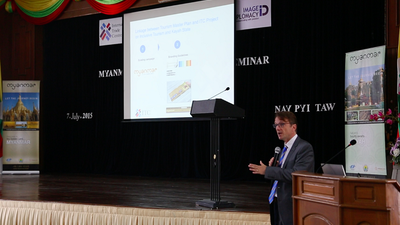Fair growth for all through tourism
Tourism represents the perfect blend of contemporary globalization, incorporating trade, mobility, people, and development. It has proven its endurance amid persisting global economic challenges, geopolitical changes, and natural and man-made crises.
The sector has become a synonym of resilience and development, bouncing back faster and stronger than most and providing economic activity embraced by an increasing number of developing nations.
Today, more than a billion people travel the world each year, generating 9% of global GDP and contributing towards one in 11 jobs worldwide. As a service export category the revenue stemming from international tourism continues to expand, reaching a record of
US$ 1.3 trillion in 2012, double its value of a decade ago.
International tourism has also become one of the top trade categories, ranking fifth worldwide after fuels, chemicals, food, and automotive products. For the emerging economies as a group, tourism is the fourth-largest export category and for the majority of developing countries it is one of the top three exports.
Tourism is often one of the few competitive options developing countries have to take part in the global economy. It is therefore no surprise that the sector has been identified by many least developed countries (LDCs) and small island developing States (SIDS) as a powerful engine for poverty reduction and economic growth.
Development strategies in low-income countries often highlight the tourism sector and its potential. The majority of LDC Diagnostic Trade Integration Studies have shown tourism as a priority sector for growth and exports.
Looking at the weight of international tourism as an export category by region, it becomes clear it can be a major catalyst for development. In Africa it already represents 7% of all exports and in Central America it accounts for as much as 13% of the sub-region’s exports. Tourism is also the first export category in the Caribbean and in Southern and Mediterranean Europe. For Central America, the Middle East and Northern Europe, tourism is the third most important export category.
For tourism to fully play its part in economic growth it must be given proper recognition and support in the design of trade, investment and business-development policies. Trade policy negotiations and implementation should address tourism and take full account of its potential. This needs the cooperation of various arms of government and other stakeholders. This approach is at the centre of the Aid for Trade and Value Chains in Tourism report by the World Tourism Organization, the Organisation of Economic Co-operation and Development and the World Trade Organization.
Tourism needs to be placed higher on the development agenda. Its important role in the global development agenda has been recognized by the United Nations, which has identified tourism as one of the sectors to drive the change towards a green economy. It was also included, for the first time, in Rio+20 in the Outcome Document of a UN Sustainable Development Conference, which highlighted tourism as an industry that can make a ‘significant contribution to the three dimensions of sustainable development, has close linkages to other sectors, and can create decent jobs and trade opportunities.’
With its direct contribution to the UN Millennium Development Goals, namely poverty eradication, gender equality, environmental sustainability, and partnerships for development, tourism also has a central role to play as part of the future Sustainable Development Goals which will constitute the UN blueprint after 2015.
Despite tourism´s evident contribution to socioeconomic development, many challenges remain. Among them is ensuring that the world´s poorest countries, more than half of which have tourism as a priority instrument for poverty reduction, continue to benefit from the fiscal and social opportunities the sector provides.
For tourism to harness its immense development potential, careful consideration must be placed on its social, socioeconomic and environmental impacts.
Sustainability remains the predominant obstacle to harnessing tourism´s benefits and mitigating its possibly negative impacts on economies, societies, and the environment.
To heed this higher call, sustainability must be upheld as the core commitment of tourism development. The challenge lies in meeting the growing demands of today´s tourists and host communities while creating the conditions to build a future of economic, environmental and social sustainability.







